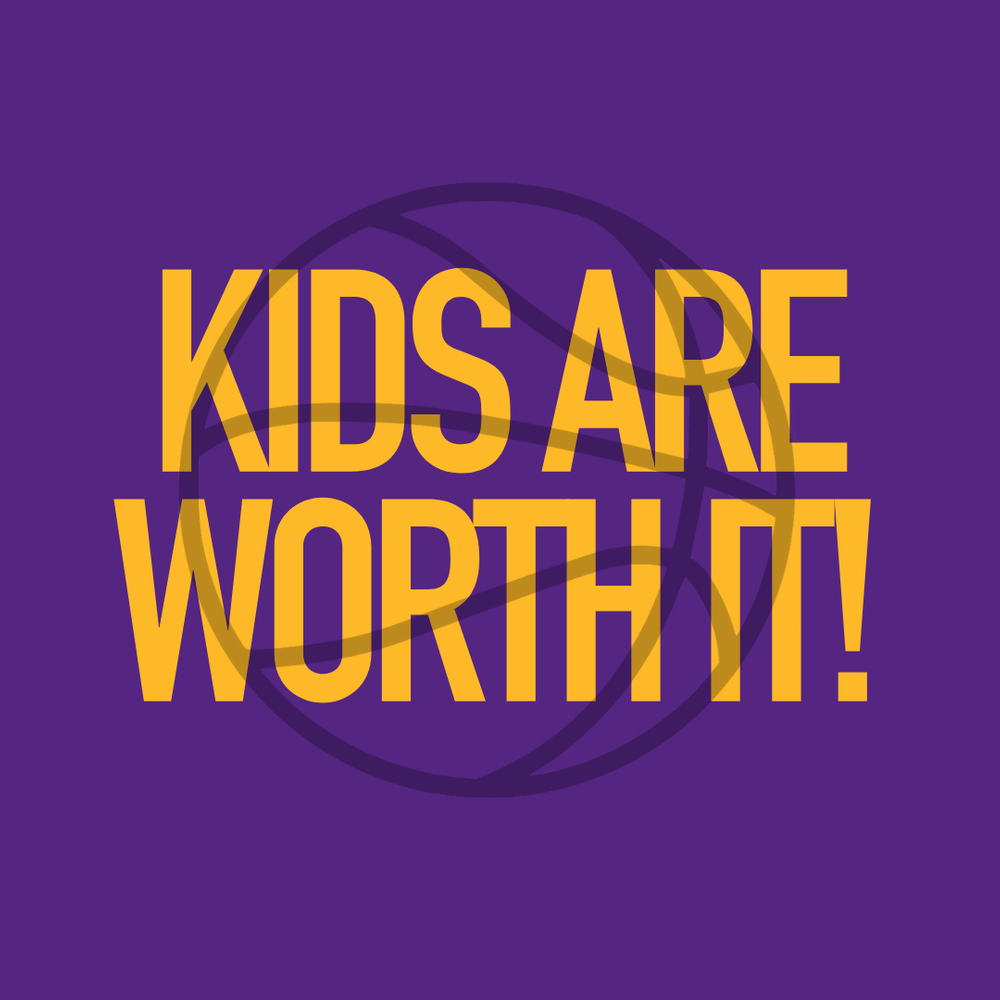Kids Are Worth It (Basketball Version)

For those who haven't read, Kids Are Worth It, by Barbara Coloroso, I hope my message today motivates you to make that your next read. I will reference the book and use examples that I've seen on the basketball court. My intention is not to judge and stereotype anyone, but rather, for those that have a genuine care to see their kids succeed on and off the court to "just look" to see what's currently there.
In the book, Barbara talks about the 4 different parenting styles:
1. Brickwall (authoritarian)
2. Jellyfish A (spoils there kid, my kid is the best)
3. Jellyfish B (non-existent, full of excuses)
4. Backbone (teaches them responsibility and accountability)
In all my years of coaching, I have seen it all. I can tell who the kids are so I know how to best connect with them. The ones that are afraid to try something new vs the risk takers. The ones that are constantly looking for their parents approval vs the ones that just play. The ones that are coaching their kids from the stands vs the ones that are there to just to watch their kid play. The ones that are constantly on demand, making sure there kid is comfortable vs the ones that give their kids the freedom to just be a kid. The ones that constantly say, "I'm proud of you" vs the ones that say, "Are you proud of yourself?" The ones that ask me how my child is doing vs the ones that assume everything is ok. The ones that quit basketball because of Covid (I kid you not) vs the ones that invested the time to go to the park with their kid and shoot some baskets. The ones that cry after they fall vs the ones that get up and play (assuming it's not an actual injury). I can go on and on.
Coaching is very much like parenting. I have 2 girls (ages 8 and 9) and I can't help but wonder if I am doing everything I can to put them in a position to be successful in life. The basketball court allows me to give them the space to learn and grow. Teaching them the fundamentals of the game is really a different way of saying that I am teaching them hard work and how working on something over and over again will give them results. At the end of the day, like you, I just want my kids to have self-confidence, be risk-takers, be hard working, be persistent, be team players, and be leaders. I know what happens after their playing days can't compare to what they may face on the court but what we can control is how they will respond to adversity and all of life's good and bad.
To sum it up, here's a classic example I see on how each parent responds different to the same scenario.
Your child played his worst game and his team lost by 25. After the game, you approach him and say...
Brickwall: Son, you played awful, you're too soft. You need to play harder or quit wasting my time. You are embarassing me.
How the son actually feels after: worthless, disempowered, embarassed.
What might happen next: quits the team, drops out of sports, quits trying new things, will try and get approval from other people
Jellyfish A: Son, you were the best player out there. So you lost and missed a few shots? The refs missed a lot of calls. If only you had better teammates and a better coach.
How the son actually feels after: confused, special, entitled
What might happen next: child doesn't improve, peers/coach will eventually give him a reality check, false sense of self
Jellyfish B: Son, I'm sorry I missed most of the game. My work meeting went longer than expected. I did make it to the last 5 minutes but you were on the bench.
How the son actually feels after: worthless, alone
What might happen next: child will seek to get attention in other ways (bad behavior at school)
Backbone: Son, what did you do well and what's one thing you can work on in practice to help prepare you to play better next time?
How the son actually feels after: empowered, confident, motivated
What might happen next: child is the first one to arrive at next practice working on his game, he plays better next game
Next steps:
1. Identify our upbringing (what parenting style or styles did you have growing up)
2. Recognize our current parenting style
3. Self-assess (now what's available that wasn't available before aka "blindspot"?)
I hope you got something positive out of this. Kids are worth it and so are you! :-)